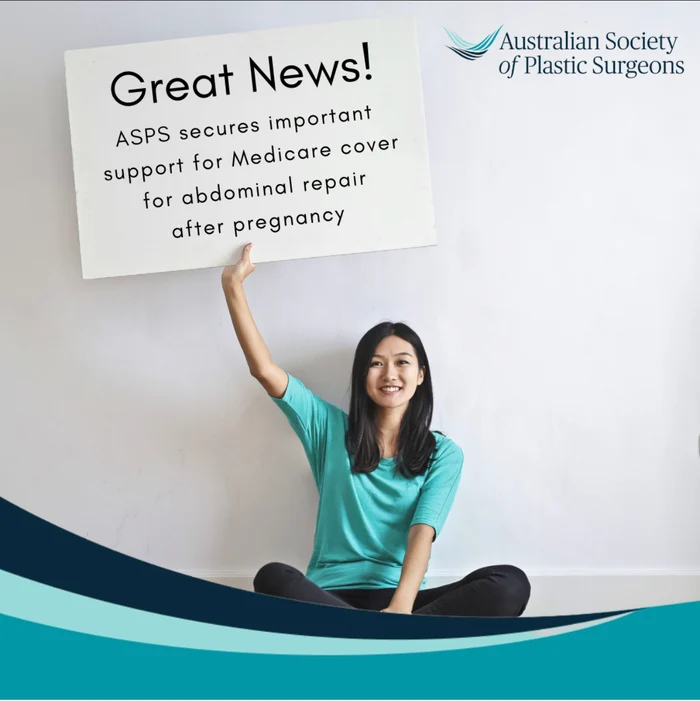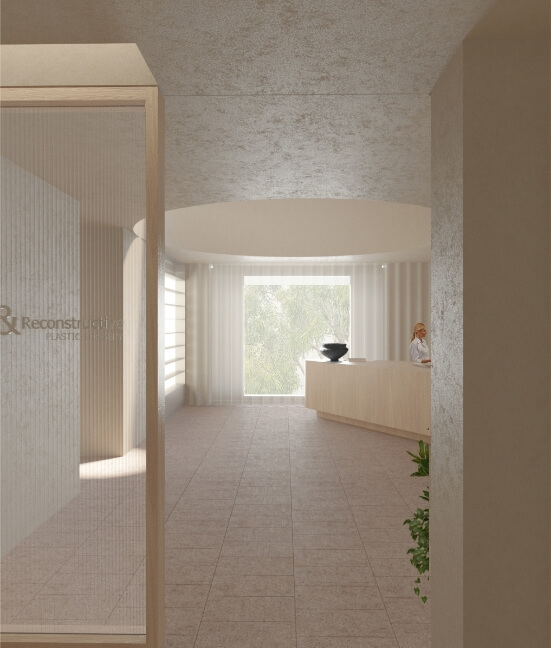Hot off the Press. Great news for women! The Australian Society of Plastic Surgeons (ASPS) have been working hard to bring back the medicare item number for Australian women who suffer from muscle separation or rectus diastasis caused by pregnancy. This means that women may be able to have reconstructive correctional surgery partly funded by Medicare by late 2022 or early 2023!
ASPS advised that The Medical Services Advisory Committee or MSAC, the independent committee that provides advice to the Government on whether a medical service should be publicly funded, has recommended creating a new Medicare item number for abdominoplasty with repair of rectus diastasis (tummy muscle split) after pregnancy!
What does this mean for patients who suffer from muscle separation after pregnancy?
Although this endorsement from MSAC is extremely positive, there is still a way to go – these things take time! The Health Minister can still reject advice from MSAC and The Department of Health may still make changes to the eligibility criteria or rebate fees.
Surgery to sew the abdominal muscles back together after pregnancy was previously covered by Medicare but was removed from the Medicare Benefits Schedule (MBS) in 2016 after concerns it was being misused for cosmetic purposes. There has subsequently been a long and difficult battle to have it restored to the MBS schedule.
When could I expect the medicare item number to become available for repair of my muscle separation?
It will likely be some time after the federal budget is announced and approved. ASPS have indicated later in 2022 to early 2023.
What will be the eligibility criteria?
The criteria have not been finalised as yet, however, MSAC supported the following criteria suggested by ASPS:
- Cause. The rectus diastasis (tummy muscle split) was caused by pregnancy.
- Timing. The patient must be at least 12 months post-partum at the time of receiving the surgery
- Gap measurement.The gap between abdominal muscles must be at least 3cm as evidenced by an diagnostic imaging such as an ultrasound scan.
- Symptoms.The patient must have documented symptoms of moderately severe pain or discomfort at the site and/or low back pain or urinary symptoms likely due to muscle separation.
- Other treatments failed.The patient must have tried and failed to respond to non-surgical treatment options such as physiotherapy.
Other examples of non-surgical treatment may be: symptomatic management with pain medication, lower back braces, lifestyle changes, physiotherapy and/or exercise.
Who decides if I’m eligible?
To qualify for the procedure under Medicare, the decision ultimately sits with the Specialist Plastic Surgeon you see to determine whether you meet the criteria.
However, ASPS expect the following medical practitioners would have also been consulted with. ASPS would also expect those practitioners would provide the operating surgeon with confirmation of whether each patient may be eligible.
- GP would have been seen for non-surgical management and treatment options. GPs would also need to make the referral to the Specialist Plastic Surgeon who will perform the surgery.
- A physiotherapist or other Allied Health practitioner such as an Exercise Physiologist may be seen if the patient tried physiotherapy or exercise programs
- The radiologist must have conducted an ultrasound to measure and confirm the inter rectus diameter (the size of the gap between abdominal muscles)
What can I do to prepare?
We know it will probably take about a year or more for this procedure to become available, so there are a few things you can do to start preparing if you think you may be eligible:
1. See your GP to discuss these pending changes to medicare. You may like to show them the ASPS information document to support these discussions. You can find this attached below.
Your GP may refer you to a physiotherapist or other health professional to attempt non-surgical treatment options for muscle separation. These may include but are not limited to: physiotherapy and/or exercise, symptomatic management with pain medication, lifestyle changes, lower back braces, etc. Bear in mind it will most likely be a requirement that you have tried to treat your muscle separation with non-surgical options before considering surgery.
2. Ask your GP to refer you for an abdominal Ultrasound of scan to formally assess muscle separation.
3. Connect with a Physiotherapist familiar with women’s health particularly those that specialise in postpartum exercise programs.
4. Look into your Private Health Insurance options so any wait times for claiming certain procedures can be ticking over whilst awaiting this procedure to become available. We are currently unsure of which health fund tier may cover this item number.
For further information please access a list of FAQs about postpartum repair of muscle separation here.
What tier of private health fund will I need?
This is still being discussed but there is preliminary advice that you will need at least silver tier or above.
When should I have an ultrasound scan?
It may be worthwhile having your abdominal ultrasound scan in the coming months to prepare for the eligibility criteria and ascertain if you may fit this 3cm eligibility criteria.
How can I keep abreast of these changes?
Please follow us on Instagram or Facebook and sign up for our newsletter to keep updated about these important changes into 2022! You can also find more information via the link at The Australian Society of Plastic Surgeons.

